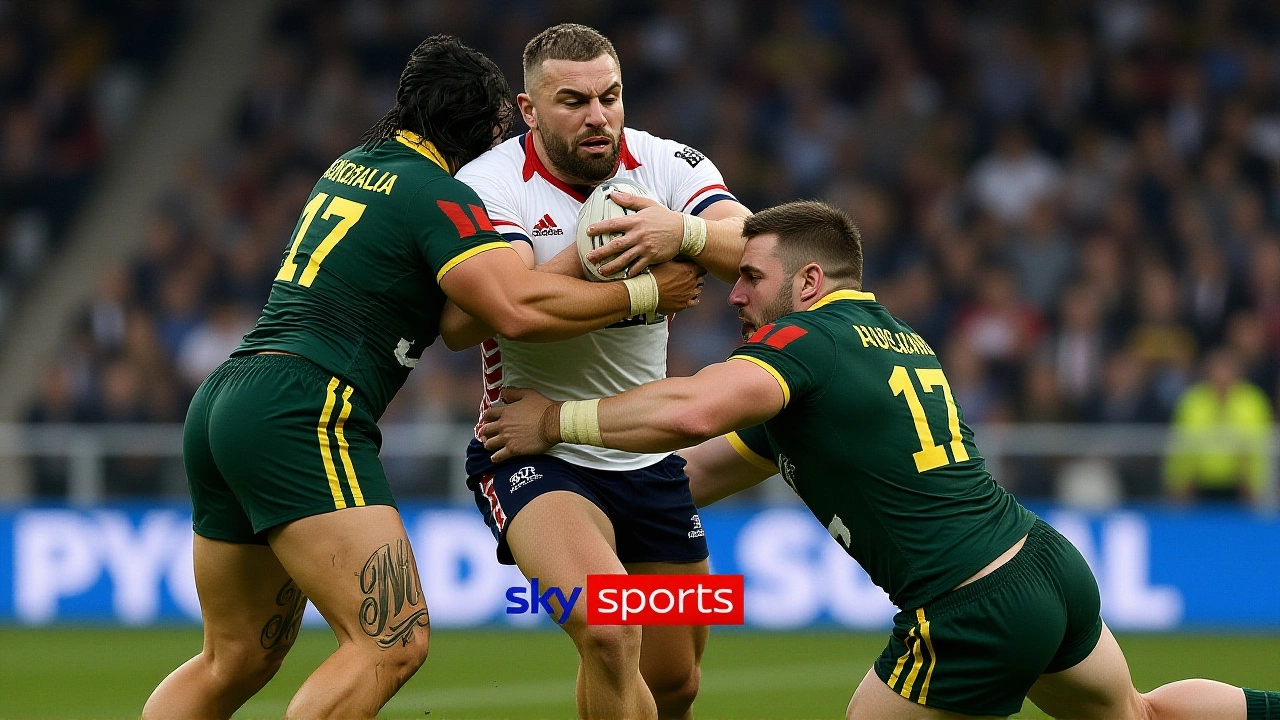It wasn’t just a win—it was a statement. Australia national rugby league team completed a historic 3-0 sweep of the England national rugby league team in the 2025 Rugby League Ashes Series, sealing the final match with a dominant 30-8 victory at Headingley Rugby Stadium on November 8, 2025. The result wasn’t surprising to those who’ve watched the Kangaroos operate at this level, but the scale of the dominance? That’s what left fans speechless. With a perfect 10-for-10 goal-kicking record from Nathan Cleary and five tries from Reece Walsh across the series, Australia didn’t just win—they redefined what dominance looks like in international rugby league.
A Series Defined by Precision, Not Pressure
The series began on October 25, 2025, at Wembley Stadium in London, where Australia rolled to a 26-6 win. England managed just one try, scored by Clark in the 76th minute, and Lewis’s conversion was the only bright spot in a night of missed opportunities. Meanwhile, Reece Walsh lit up the scoreboard with two tries, and Cleary converted all five of his attempts—perfect from the boot, perfect in control. The message was clear: Australia wasn’t here to play. They were here to conquer.The second Test, played November 1 at Everton in front of 52,106 fans, was where the Ashes were officially clinched. England held a 4-0 lead at halftime, but the second half was a masterclass in opportunistic rugby. Cameron Munster and Hudson Young scored tries within four minutes of each other, turning a tight contest into a rout. Even when Walsh was sin-binned, England couldn’t capitalize. They had chances. They just couldn’t finish. The final 14-4 scoreline wasn’t a fluke—it was the result of Australia’s relentless structure and England’s self-inflicted errors.
The Grand Finale: A Statement in Leeds
The third and final Test at Headingley Rugby Stadium drew 19,500 fans, many of them English, hoping for a miracle. What they got was a reminder of why Australia remains the benchmark. England’s Williams scored a try in the 33rd minute, and Harry Smith converted it, then added a penalty goal. It was their only sustained offensive push. The rest? Australia’s machine. Addo-Carr opened the scoring in the fifth minute. Young struck again. Grant added another. And then—Walsh, twice. The final try, in the 78th minute, was the dagger. As the commentator said: "That well and truly is the shot across the bow that gives Australia a 3-0 series win."Harry Grant of Australia was named Player of the Match, not because he scored, but because he orchestrated. His decision-making under pressure, his line breaks, his defensive reads—everything was textbook. And behind him, Cleary, with five more conversions, finished the series with a flawless 10-for-10 record. No misses. No excuses. Just execution.
Why This Matters Beyond the Scoreline
The Ashes series, modeled after cricket’s historic rivalry, dates back to 1908–09. Since then, Australia has held the upper hand in nearly every encounter. But this 2025 sweep? It’s different. It’s not just about winning—it’s about sending a signal to the rest of the world. New Zealand, Fiji, Papua New Guinea—they all watch. And now they see what’s possible when a program invests in structure, depth, and culture. England, despite spirited performances, continues to struggle with consistency in key moments. Their players aren’t lacking talent. But their systems? They’re still catching up.The total attendance across all three matches—112,918—shows the passion still exists. Wembley’s 60,812 fans were a reminder of rugby league’s roots in England. But Headingley’s turnout? That was a crowd hoping for a comeback. They didn’t get one. And that’s the uncomfortable truth for English rugby league: the gap isn’t closing. It’s widening.

What’s Next for Both Teams?
Australia’s next challenge is the 2026 Pacific Championships, where they’ll face Tonga and Samoa. But make no mistake: this Ashes sweep isn’t just a trophy—it’s a benchmark. The Kangaroos have now won 17 of the last 18 Ashes series. The last time England won? 2003. That’s over two decades ago.For England, the path forward is clearer but harder. They need a long-term development strategy—more investment in grassroots, better access to elite coaching, and a unified vision between the Rugby Football League and club structures. As one former England captain put it after the match: "We didn’t lose because we were outclassed. We lost because we couldn’t take the chances we were given. That’s a habit. And habits take years to break."
The Kangaroo tour of England is traditionally a once-every-four-years event. The next one won’t come until 2029. By then, Australia will likely be even stronger. England? They’ll be hoping for a miracle.
Frequently Asked Questions
How does this 3-0 sweep compare to previous Ashes series results?
This is Australia’s third consecutive 3-0 whitewash in the Ashes series, following similar sweeps in 2017 and 2019. The only time England won a series since 1990 was in 2003 (2-1). Australia has now won 17 of the last 18 series, with the 2025 result extending their streak of dominance to over 20 years. The point differential across the three 2025 matches—70-20—was the largest since 1982.
Why was Nathan Cleary’s goal-kicking so critical to Australia’s success?
Cleary’s perfect 10-for-10 conversion rate across the second and third Tests added 20 points to Australia’s total—equivalent to nearly two full tries. In tight games, those points matter. Against England’s defense, which often held firm, Cleary turned close tries into decisive margins. His accuracy under pressure, especially after the sin-bin periods, gave Australia psychological control. No other kicker in the modern era has maintained a 100% record over three Tests in a single Ashes series.
What role did Reece Walsh play across the series?
Walsh was Australia’s offensive engine. He scored five tries across the three Tests, including two in the opener at Wembley and two more in the final match at Headingley. His speed off the edge and ability to read defensive gaps created constant pressure. He also drew multiple sin-bins for England, forcing them into reactive play. His performance was so dominant that he was named in the official Team of the Series by the Rugby League International Federation.
Why did attendance drop so sharply in the third Test at Headingley?
Attendance fell from over 52,000 at Everton to under 20,000 at Headingley because the series was already decided. Fans knew Australia had clinched the Ashes after the second Test. Many English supporters chose not to travel, and ticket sales reflected the lack of hope. The venue itself—Headingley—is smaller than Wembley, but even with a full capacity, the energy was muted. The result wasn’t just a loss—it was a symbolic end to the series.
What’s the historical significance of the Ashes in rugby league?
The Ashes in rugby league, first contested in 1908–09, mirrors the cricket rivalry between Australia and England. It’s the oldest international trophy in the sport. Winning it has long been seen as proof of global supremacy. The trophy itself is a replica of the cricket Ashes urn, symbolizing the shared colonial history and sporting rivalry. For Australia, it’s not just a series—it’s a legacy. For England, it’s the holy grail they’ve chased for decades without success.
What are the chances England wins the next Ashes series in 2029?
Very slim. Australia’s depth is unmatched—they’ve got a pipeline of talent from the NRL, including under-20s stars who are already turning heads. England, meanwhile, still relies on a handful of elite players from Super League, with limited exposure to high-intensity international competition. Without a radical overhaul in development, coaching, and funding, England’s chances remain near zero. The 2025 series wasn’t just a win—it was a warning.
